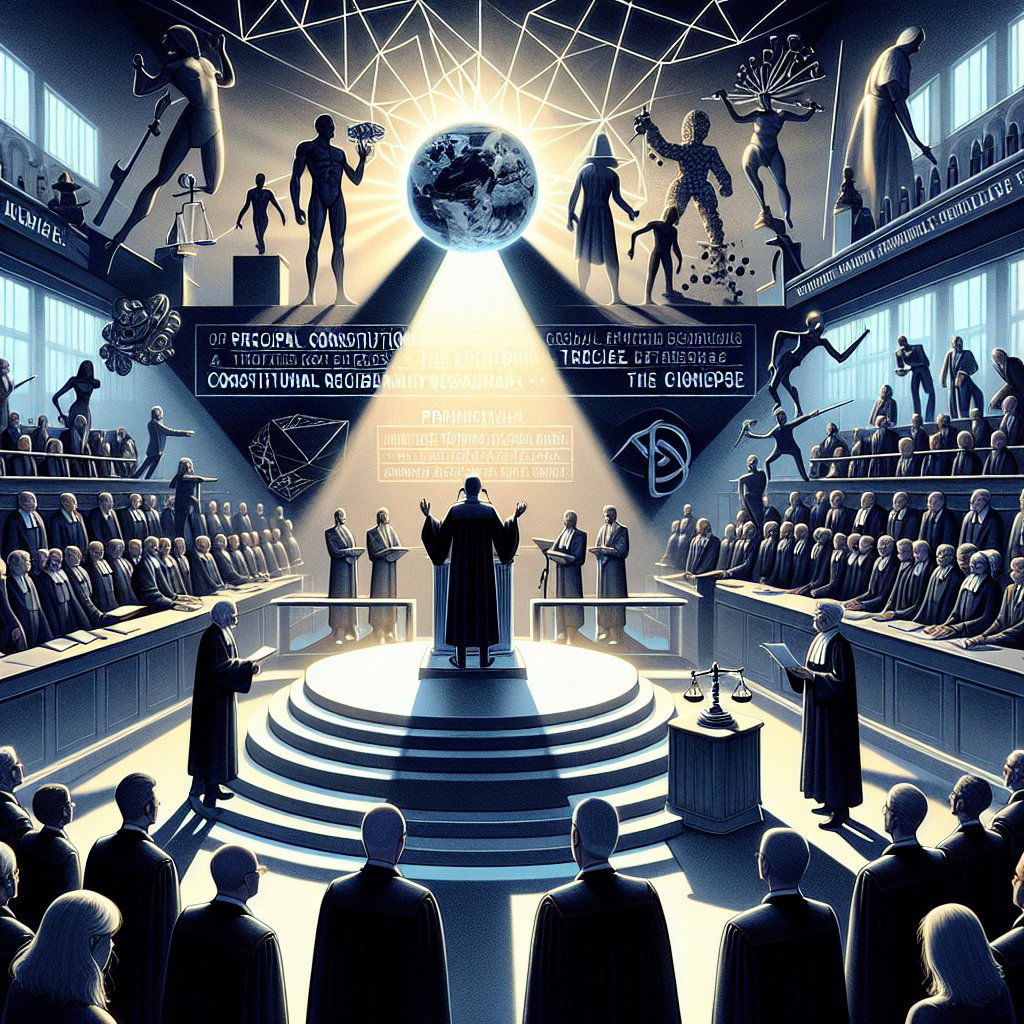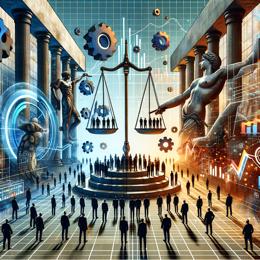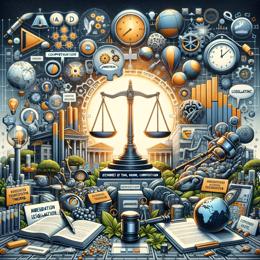Image created by AI
The Crusade for Justice: Upholding the Constitution in South Africa
In a stirring call to action at the veneration of the Sydney and Felicia Kentridge Award, the esteemed Judge Edwin Cameron delivered a potent message about the grave threats facing South Africa's democracy, rule of law, and Constitution. Three decades since its founding democratic promise, South Africa wrestles with the twofold peril rooted in stark economic inequalities and insidious attempts to undermine its legal foundations.
The historical context is grim – decades of embedded poverty, marginalization, and the World Bank’s observations that the nation’s trajectory towards poverty reduction came to an abrupt pause in 2011, a direct result of the cataclysmic state capture under the administration of former President Jacob Zuma. The stark disparity in income distribution places South Africa among the world's most unequal societies, an inequality tainted by the legacy of legal architecture employed during the centuries-long dark period of racial subordination.
Yet amidst these shadows, rays of hope emerged through the values enshrined in the Constitution, which amplified the voice of a fledgling democracy and the protections offered by the Bill of Rights. Groundbreaking legal victories, such as the Treatment Action Campaign case, signified pivotal strides toward lifting the vulnerable segments of society. Yet, according to Judge Cameron, the vision of justice for all remains incompletely realized, with the onus falling not merely on the government but on the wider legal fraternity itself.
The legal system’s ability to serve the entirety of the nation's populace, without exception, is a yardstick of its integrity. As active contributors to the legal milieu, lawyers, advocates, and judges are beckoned to take actionable steps to guarantee that the reach of justice is not selective but thoroughly orbits the nucleus of society's marginalized.
Even more perilous, however, is the internal threat – a cohort of lawyers who manipulate the system to the advantage of those with nefarious aims, seeking to dismantle the legal edifices set to curtail corruption and enable systemic looting. The malignancy of these tactics extends to infiltrating institutions such as the Judicial Service Commission, with an overarching aim to destabilize the bulwarks of justice.
The clarion call issued by Judge Cameron is one of resilient opposition to this assault. He contends that mere moral indignation will not suffice; a rigorous, principled response is imperative. The legal profession, alongside the Judiciary, stands as the vanguard against these incursions, guarding the Constitution and responding firmly to those whose legal antics seek to erode it.
In paying tribute to the luminaries of the legal craft who championed justice in more perilous eras, Cameron charges today’s legal practitioners to rise above self-congratulation and to emulate the audacity of their predecessors by championing a just legal order that transcends personal gain.
As the nation grapples with its narratively distinct challenges, the global landscape too is rife with parallel struggles against authoritarianism and constitutional subversion, popular in character yet similarly threatening to the principles of democracy and social justice.
With a resolute call to action, Judge Cameron implores the legal profession of South Africa to recommit to the pursuit of thoroughgoing justice, to wield law as a tool for inclusion and equitable advancement, safeguarding the nation against a future besmirched by populism and the chaos of criminal power.










